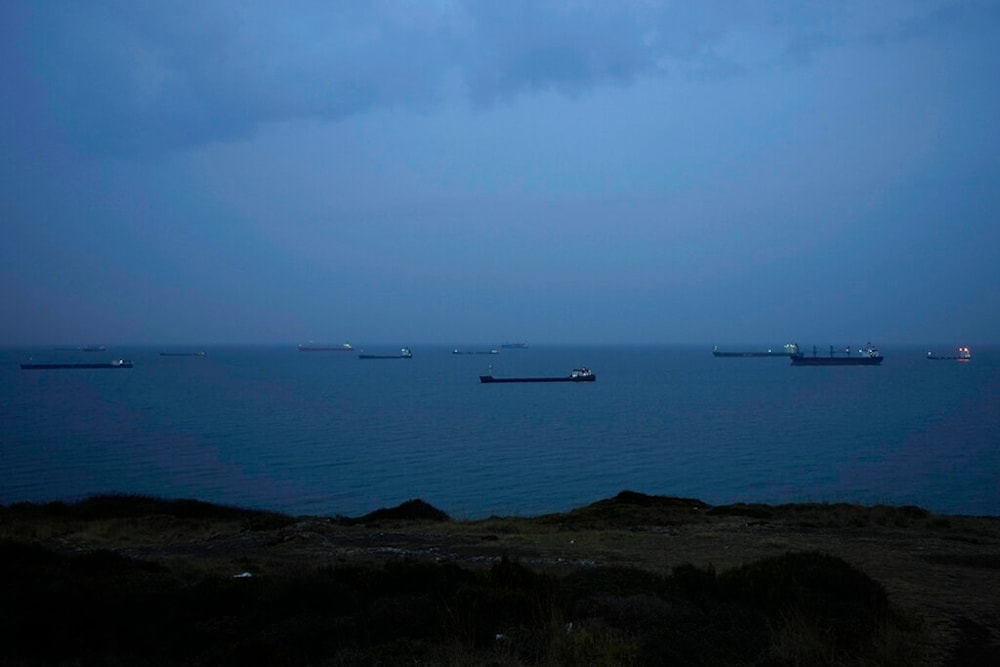US plans Black Sea logistics centers to speed arms supply to Ukraine
Ukraine's allies in June called for unhindered access to ports in the Black and Azov seas to allegedly support global food security.
-

Cargo ships anchor at the Black Sea wait to cross the Bosporus strait in Istanbul, Turkey, Thursday, November 17, 2022. (AP)
In an interview with Rossiyskaya Gazeta on Thursday, Russian presidential aide Nikolai Patrushev said that the US is aiming to establish logistics centers in the Black Sea region to expedite arms supplies and deploy long-range weapons to Ukraine.
"In the countries of the Black Sea region, the United States intends to create logistics centers to accelerate the supply of weapons to Ukraine, as well as to deploy modern long-range weapons," Patrushev said.
He also criticized the idea of allowing Western ships unhindered access to ports in the Sea of Azov.
"Given the aggressive nature of Western countries that directly support the Kiev regime in conducting military and terrorist actions against Russia, currently any unhindered passage of their ships to the ports of Azov is out of the question," he told Rossiyskaya Gazeta.
These statements follow a recent joint communiqué signed at a Swiss-hosted Ukraine summit, in which nations called for unhindered access to ports in the Black and Azov Seas to allegedly support global food security.
Read more: Russia largest wheat exporter in the world
The Black Sea Grain Initiative was a 2022 agreement between Russia, Ukraine, Turkey, and the UN to safely export grain from Ukrainian ports amid the war in Ukraine. The war halted maritime grain shipments, leading to global food price increases and famine risks.
The agreement, signed on July 22, 2022, established safe export procedures and a coordination center in Turkey. It was initially set for 120 days and extended several times. By mid-July 2023, over 1,000 voyages had transported nearly 33 million tons of grain. But with no new renewal agreement by July 17, 2023, the deal expired.
International watchdogs have repeatedly warned that the lion's share of the food produce was delivered to the West, while poor countries combined received less than one-third of exports, with nothing done by the international community to this end.
The UN itself admitted the disproportionality through its coordinator who maintained that developing and impoverished nations received only 10% of corn and 40% of wheat, while rich countries obtained 90% of corn and 60% of wheat.
Read more: Russia to supply free grain to African countries soon: Ministry
In March, Russia's President Vladimir Putin expressed support in an initiative to create a grain exchange within the BRICS bloc and said speculative trading affects prices and consumers.
"All these exchange indices are formed either in the United States or in Europe, in Paris. I do not know, how much grain do the French produce? I think less than we do. And traditionally, stock the exchange index is formed there. Of course, this is unfair, because from here it affects pricing. Your idea (the initiative in question) is very good," Putin said.

 3 Min Read
3 Min Read









